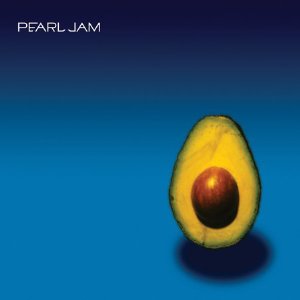24
Oct 12
Pearl Jam: “World Wide Suicide”
For some reason, I didn’t trust Pearl Jam when their debut album, Ten, came out in 1991. That is, I liked it, but didn’t really know if this was just a band getting lucky with some good songs or if it was the beginning of something truly great. Somehow, Nirvana’s Nevermind was clearly great, but Ten wasn’t as obvious to me. But I think part of that was just me, not giving the album the full attention it deserved, because I later came to appreciate it much more. Nonetheless, it still isn’t my favorite of Pearl Jam’s early albums — I like listening to both Vs. and Vitalogy more. Maybe it’s due to radio overkill, I don’t know.
Sometime in the late ’90s, I stopped paying attention to Pearl Jam — I didn’t hear much that interested me, and due to lackluster reviews I didn’t give their albums from that period a listen. Even Binaural, which in retrospect I now realize I should have paid attention to, passed me by. But then in 2006, I saw them live and at the same time heard that year’s Pearl Jam album, and it suddenly fell into place. I realized that they were the true inheritors of the mantle passed on by the likes of the ’70s-era Who many years before (with no one at the time to truly pass it on to), and Eddie Vedder was picking up the role of rock star that he had seemingly shunned for so long and was finding it to fit him quite nicely, in the best of ways. Like a modern-day John Lennon, he was using it to fight the good fight, and I think he’s among the most admirable of today’s music figures. If you haven’t seen the Pearl Jam Twenty documentary yet, you really should…it’s pretty fascinating.
But back to 2006’s Pearl Jam. It’s one of the band’s most forceful, all-out rocking albums, neatly pulling in punk influences and meshing them seamlessly with big, classic-rock-type sounds. The whole band does a great job, but Vedder in particular seems completely energized, seething with anger at the state of America’s world affairs during the Bush years, and nowhere on the album is that more evident than on the first two songs, “Life Wasted” and “World Wide Suicide.” Two of their best songs (among a strong group of competing songs), they both announced in no uncertain terms that the band had returned, more confident than ever. I tend to lean a bit more in the direction of the anti-war rant, “World Wide Suicide,” because of its more-varied dynamics, with some cool ebb and flow to it. In the song, Vedder pulls no punches on the Bush administration:
Medals on a wooden mantle, next to a handsome face
That the president took for granted
Writing checks that others pay.
And in all the madness, thought becomes numb and naive.
So much to talk about, nothing for to say.
It’s the same everyday and the wave won’t break
Tell you to pray, while the devil’s on their shoulder.
[…]
The whole world, world over
It’s a world-wide suicide.
Eddie Vedder is rock ‘n’ roll’s conscience, and it’s a role that suits him well, particularly on “World Wide Suicide.” I for one hope that he stays reinvigorated for a long time to come.




I sort of felt the same way about “Ten” when it came out too but I’ve been listening lately to a bootleg of their early demos (when they still called themselves “Mookie Blaylock”) and it is remarkable how good they were right from the start. Maybe that’s why I didn’t trust them at first, they were too good! I really liked that documentary too.